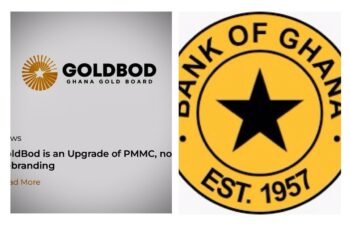The Ghana Chamber of Mines, at its 97th Annual General Meeting held on May 30, 2025, delivered a strong message calling for policy stability, transparency in mineral revenue management, and a sustained commitment to local development.
With Ghana recording impressive gains in gold output and mineral revenues in 2024, the Chamber is urging the government to capitalize on this momentum through robust regulatory and fiscal reforms that protect both investors and citizens.
In his keynote address, Acting Chief Executive Officer of the Chamber, Ahmed D. Nantogmah, stressed the importance of creating a more predictable policy environment to sustain investment in Ghana’s mining industry.
“We urge government to continue to prioritize policy credibility and consistency.
“Sudden changes in fiscal regimes, licensing processes, or regulatory requirements create uncertainty for investors and reduce the attractiveness of Ghana as a preferred mining destination.”
Ahmed D. Nantogmah, Acting Chief Executive Officer of the Chamber
A central theme of Nantogmah’s remarks was the need for a Mineral Revenue Management Act, modeled after the Petroleum Revenue Management Act (PRMA).

He described the proposed legislation as critical to ensuring transparent and accountable use of mineral revenues at both national and sub-national levels.
“The Chamber continued its advocacy on the need to establish a Mineral Revenue Management Act.
“Such legislation will provide a structured and transparent framework for the collection, allocation, and utilization of mineral revenues.”
Ahmed D. Nantogmah, Acting Chief Executive Officer of the Chamber
He added that the law would promote intergenerational equity and enable Parliament and civil society to exercise informed oversight.
Ahmed Nantogmah emphasized that communities must tangibly benefit from the wealth generated by mining.
“Ghanaians must see and feel the benefits of the resources extracted from our lands.
“We call for a fully operational resource-backed development framework, such as the Mineral Development Fund, with regular reporting and citizen oversight.”
Ahmed D. Nantogmah, Acting Chief Executive Officer of the Chamber
Ghana’s Mining Sector in Numbers – A Year of Growth

President of the Chamber, Michael Edem Akafia, unveiled the sector’s 2024 performance figures, highlighting significant improvements across production, revenue, and fiscal contributions.
“In 2024, Ghana recorded an increase in gold output from 4.0 million ounces in 2023 to 4.8 million ounces—a year-on-year growth of 19.3%.
“Chamber’s producing members accounted for 59.4% of national gold output.”
Michael Edem Akafia, President of the Chamber
Mineral revenues also rose sharply, climbing by 19.8% to hit $7.1 billion. Export earnings surged by 52.7% to $11.9 billion from $7.8 billion in 2023, representing 58.4% of total merchandise exports. Gold alone brought in $11.6 billion.
The mining sector’s contribution to national coffers was equally noteworthy.
“Mining contributed GHS17.7 billion in fiscal payments to the government in 2024, a 51.2% increase from GHS11.7 billion in the previous year.
“Dividends paid to the state surged by over 600% to GHS1.03 billion.”
Michael Edem Akafia, President of the Chamber

Royalties also saw an uptick, with mineral royalty payments increasing from GHS2.8 billion in 2023 to GHS4.9 billion in 2024. The sector’s producing companies repatriated 70.8% of their earnings, returning $4.99 billion to the country.
Chamber members spent $5.5 billion—about 73.7% of their revenue—within Ghana. Of this, $2.9 billion went into local procurement, $1.4 billion into tax payments, and over $600 million into employee compensation. A further $28 million was allocated for community development projects.
Despite significant offshore expenditures—$972.8 million in capital expenditure, $240.7 million in imported consumables, and $660.1 million transferred to non-government shareholders—the local retention of earnings and expenditures demonstrates the sector’s pivotal role in Ghana’s economic structure.
The Chamber’s leadership reaffirmed its commitment to working collaboratively with government, Parliament, and civil society to advance a more transparent, inclusive, and competitive mining sector.
With Ghana’s mining industry showing strong performance indicators, the Chamber’s call for clear policy frameworks and responsible revenue management could serve as a springboard for broader economic resilience and equitable development in the years ahead.
READ ALSO: Ecobank Transnational Incorporated Withholds Dividend Payment Despite Stellar 2024 Performance























